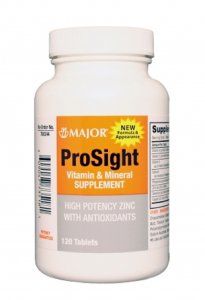This is an automatically translated article.
The article was professionally consulted by Specialist Doctor II, Senior Doctor Doan Du Dat - General Internal Medicine - Department of Medical Examination and Internal Medicine - Vinmec Ha Long International General HospitalVitamin A is an essential micronutrient that the human body cannot synthesize, so it must be obtained from the diet. Vitamin A plays an important role in many physiological processes in the body.
1. What is Vitamin A?
Vitamin A plays an important role in many physiological processes such as maintaining the function of the epithelium (skin, mucous membranes of the respiratory tract, intestines, bladder, inner ear and eye area), assisting in skin cell replacement, Supports vision in low-light environments, maintains a good immune system, supports growth and reproduction.When the body lacks Vitamin A, the risk of infection increases and when infection, the body will need more Vitamin A, causing a serious Vitamin A deficiency. As a result, children can be caught in a vicious cycle between vitamin A deficiency - infections and increased child mortality. In addition, Vitamin A can also cause dry skin, dry eyes, slow-growing night blindness. An excess of Vitamin A can also cause large amounts of Vitamin A to accumulate in the liver and cause side effects such as bone swelling, mouth ulcers, vision changes and confusion.
2. Supplement Vitamin A from food
Vitamin A in fruits and vegetables: Dark green leafy vegetables, Sweet potatoes; Carrot; Red pumpkin; Yellow corn; Mango; Papaya... Vitamin A from animal sources: Liver; Egg; Milk. Vitamin A from oils: Red palm oil.
Thực phẩm chứa nhiều vitamin A
3. How much Vitamin A is enough?
Vitamin A requirements for each subject are as follows:Take vitamin A supplements for infants aged 6 - 59 months : The World Health Organization recommends that all infants aged 6 - 59 months need be supplemented with Vitamin A if Vitamin A deficiency is a public health problem where the young child is. Taking vitamin A supplements for babies from 1 to 5 months old: The World Health Organization has not made recommendations on vitamin A supplements for babies from 1 to 5 months old. For the first 6 months after giving birth, women should breastfeed their babies to ensure optimal growth, development, and health. Taking Vitamin A Supplements for Pregnant Women: Although pregnant women may be at risk of Vitamin A deficiency, taking Vitamin A supplements is not advisable due to the high levels of Vitamin A in these foods. Oral supplements can adversely affect the unborn baby. Pregnant women should get Vitamin A through their diet. However, in areas where Vitamin A deficiency is a public health problem, pregnant women can take Vitamin A supplements but at low doses. Note that vitamin A should be used reasonably and as directed by a doctor, not to be abused because it can be harmful to your health.
Please dial HOTLINE for more information or register for an appointment HERE. Download MyVinmec app to make appointments faster and to manage your bookings easily.
Reference source: healthline.com












